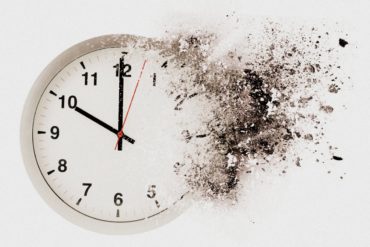How many times during the day do you check email, or go to see updates of your favorite blogs or social sites, or shuffle paperwork or make phone calls… when you know you should be doing something more important?
Procrastination is in all of us, and one of the best ways to procrastinate is to do all the busy-work that makes us feel like we’re doing stuff — while not doing the stuff we know we should be doing.
by Leo Babauta
We need to do the important stuff, we know we need to… and yet we don’t. So how do we combat this urge? Here are some ways to strategize against this all-too-common phenomena.
20 points to consider
I suggest not doing just one thing, but many. Attack the enemy from all sides, and soon the enemy will collapse.
 Here are some great strategies for beating the urge to do the useless:
Here are some great strategies for beating the urge to do the useless:
1) Know what’s important. If your task list is just a list of everything you need to do, you haven’t distinguished between the high-impact tasks and the busy-work. Mark down your top three priorities for the day. Everything else should be secondary.
2) Make it prominent. Either on your computer or on your wall, or right smack in the middle of your desk, have some kind of prominent reminder of what you’re supposed to be doing today.
3) Single-task. I wrote recently about the power of single-tasking, and that’s important here, because if you multitask, you tend to switch between what you should be doing and what you shouldn’t — the important vs. the useless tasks.
4) Identify your time-wasters. What are the things that you do most often? For some, it’s email, for others, it’s the phone, for others, it’s a certain website or three. If you aren’t sure, track it for a couple days. Know your time-wasters and you can beat them.
5) Log them. Sometimes just the act of keeping track of something for a week or two will make you more conscious of things. You could use a service such as pageaddict, or just use paper and pen.
6) Change your habits. If your biggest time-waster is email (for example), make a conscious, dedicated effort to change that specific habit, from checking email every 5 minutes to checking it at two or three designated times of day (for example).
7) Be accountable. Tell people you’re going to change. Be accountable to them so they can see how many times you succeeded and failed. Daily email updates to your friends is a good method, as is using an online forum, or posting a big tally sheet in your office where everyone can see it. The positive public pressure will help.
8) Have good reasons to save time. Why do you want to kill your time-wasters? If you don’t have a good reason, it won’t matter much. But if you want to finish work early in order to spend time with your family, or you want to make time for exercise or relaxation or reading or whatever, or you really want to achieve a certain goal or complete a big project… these reasons will motivate you to change. Remember your motivation at all times.
9) Reward yourself. Each time you resist the urge, give yourself a reward. It could be a treat, or points that earn bigger rewards, or something relaxing.
10) Unplug. If your biggest time-wasters are online (or email), consider disconnecting for certain key periods of the day. I get my best writing done when I disconnect from the Internet, for example.
11) Know your key times. When do you have the most energy and get the most work done? Identify those times of the day and make them your “distraction-free” times. Only allow yourself to do the important tasks in those times.
12) Get rid of distractions. Turn off the phones, plug in your headphones (to block out sound), put up a “do not disturb” sign, turn off your email notifiers, maybe put your email in vacation mode. Get rid of visual clutter around you as well.
13) Go cold turkey. Sometimes, if an addiction is really strong, you just have to cut it out completely and weather the tough times. If your addiction is email, for example, don’t do email for several days. It’ll be very hard. Pretend you’re on vacation. Then, when you return to email, set certain times and start with new habits.
14) Block them. Technology is great, and you can use technology to beat technology time-wasters. Stealth Kiwi and LeechBlock are two good ones, among many others.
15) Batch them. Keep a list of things you need to do that aren’t on your list of three priorities. Then do them all at once, when you have some extra time. That’ll keep you from doing things throughout the day.
16) Schedule them. Designate certain times of day to do your batch processing of email, phone calls, meetings, whatever. Then, when you’re not at the scheduled time for those things, you know you’re not supposed to be doing them.
17) Always rethink. Periodically examine the way you do things, and think about whether there’s a better way. That doesn’t mean you need to change things all the time, but sometimes we keep doing something a certain way just because that’s what we’re used to doing. Instead, see if there are things you can eliminate, streamline, do more effectively.
18) Change your location. If the above strategies don’t work, sometimes it’s good to get away and try a new location. Take a laptop to a coffee shop, work out of a library, work at home (if you don’t already), or otherwise find some quiet spot where you can work without distractions, and perhaps without an Internet connection if you don’t need it.
19) Focus on results. What do you want to achieve today? Have that achievement be the focus of your entire day. Try to complete that project or major task or goal … and at the end of the day, be sure to assess whether you were successful or not.
20) Celebrate! If you were able to complete your goal for the day, be sure to bask in the glory of your victory. That good feeling of accomplishment will help motivate you to keep doing that — it’s a satisfaction that is rewarding in itself, but you need to put special focus on it at the end of each day. Do that, and you won’t want to fail at your goal the next day.







